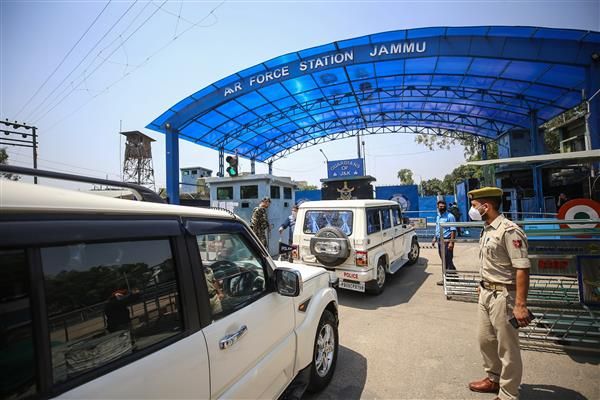Home Ministry too objected to any further opening up of skies

Days before the drone attack on the Jammu air base, top officials in the armed forces and the Home Ministry had objected to any further opening up of the skies for civilian drone operations. File photo
Ajay Banerjee
Tribune News Service
New Delhi, June 28
Days before the drone attack on the Jammu air base, top officials in the armed forces and the Home Ministry had objected to any further opening up of the skies for civilian drone operations.
The use of drones by civilian operators came up for discussion last week during a meeting on Unmanned Aircraft System Rules, which came into effect on March 12. The rules allow flying of drones under certain conditions. There are 34 green zones in which drone operations are permitted after intimation about the time and location of flight.
“Yellow zones” require permission to operate drones, but “red zones” are no go areas. The use of drones for civilian operations across the country is being discussed as part of a policy to regulate small drones, their ownership and permission to operate.
Sources said the Home Ministry officials wanted that drone operations should have 80-km buffer from any military, strategic or high-value targets. The armed forces maintained that the country, or even the world, didn’t have any technology to detect, destroy and prevent a drone from being a threat in an area as vast as India. Solutions could be applied only to close tactical areas, provided manned surveillance and quick response teams were in place.
The new Indian drone regulations, titled UAS Rules-2021, ask drone operators to adhere to a set of rules. This includes having a student pilot licence, remote pilot licence and a permit for becoming an unmanned aircraft operator.
The drones have to be “no permission, no take-off” (NPNT) compliant. The NPNT is a software that enables every remotely piloted aircraft to obtain a valid permission through “DigitalSky” platform before operating in India
